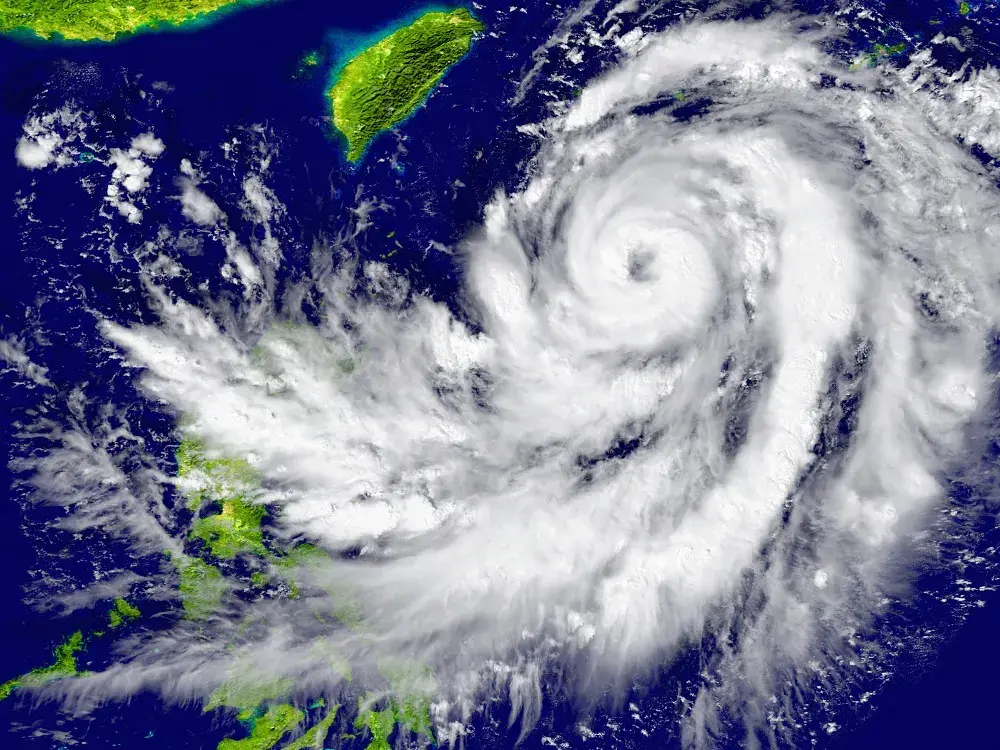Is It Safe to Use Air Conditioning During Typhoon Weather?
Listen to the blog audio:

Imagine the fierce winds and torrential rains of a Hong Kong typhoon battering your home, shaking windows, and rattling doors. As you huddle inside, seeking refuge from the storm's fury, you might wonder: Is it safe to use my air conditioner during a typhoon, or could it pose a greater risk?
When the Hong Kong Observatory forecasts a No. 8 typhoon signal, many people face this dilemma. Should you brave the humidity without cooling relief, or is it safe to keep the AC running? This blog post explores the risks and provides essential safety measures to ensure your home remains secure during a typhoon.
Risks of Using Air Conditioning During a Typhoon
Experienced air conditioning technicians advise that, regardless of whether you have a window unit or a split air conditioner, it is best to avoid using your air conditioner during a typhoon, especially those units exposed to strong winds. This can help prevent overheating due to poor heat dissipation, which could lead to damage or even a fire.
Motor Reverse Rotation Issues
The strong winds from a typhoon can cause the motor of the air conditioner to run in reverse. This not only affects the normal operation of the air conditioner but can also damage the motor and pose a safety hazard to users. In extremely strong wind conditions, air conditioner components are susceptible to excessive stress, leading to irreversible damage. If the cooling fan motor of the air conditioner is damaged, repair AC costs can range from HKD$1,000 to HKD$2,000. Unless your air conditioner is a relatively new model, replacing it may be a better option.
Overheating Risks
Air conditioner motors operating under the additional load from strong winds may overheat and potentially catch fire, particularly if they are running for an extended period. Typhoon conditions can reduce the effectiveness of heat dissipation, increasing the risk of overheating and, eventually, a fire hazard.
Risk of Air Conditioners Falling
If the air conditioner is not securely installed, strong winds could dislodge it, posing a significant risk to pedestrians and property below. Window units, in particular, may become unstable due to the powerful impacts of a typhoon.
Common Air Conditioner Problems During a Typhoon
Typhoons bring not only strong winds but also heavy rain, which presents significant challenges for air conditioners:
Air Conditioner Water Leakage
Rainwater driven by strong winds may enter the air conditioner, leading to short circuits or mechanical damage, especially in window units. It is advisable to take waterproofing measures before a typhoon, such as using waterproof covers or other materials to protect the air conditioner. As an emergency measure, you can use plastic bags to seal the gaps between the air conditioner and the window. However, note that the silicone sealing the air conditioner may age and develop gaps, allowing rainwater to seep in during a typhoon. The solution is to replace the silicone sealant on a sunny day.
Unusual Noises from Air Conditioners
During a typhoon, air conditioners may produce unusual noises due to strong winds and high pressure. This could be caused by excessive wind pressure or internal components being affected. If you hear strange noises, you should immediately turn off the air conditioner and either inspect it yourself or contact a professional technician.
Safety Measures for Air Conditioners During a No. 8 Typhoon Signal
- Turn Off the Air Conditioner: To prevent damage or fire hazards, turn off your air conditioner during a typhoon, especially window units facing strong winds. This reduces the impact of wind pressure and prevents the risks associated with motor overload.
- Secure the Air Conditioner: Check the air conditioner's installation to ensure it won't shift or fall during strong winds. Use additional fixtures like extra screws or brackets to reinforce the air conditioner, ensuring it remains stable during the typhoon.
- Waterproofing Measures: Before a typhoon, ensure there are no potential leaks around your air conditioner. Use waterproof tape or other materials around the installation area and check for cracks or other vulnerable spots that might leak.
Home Windproofing Tips During a Typhoon
- Close Doors and Windows: Before the typhoon hits, close all doors and windows to prevent strong winds from entering and causing pressure differences that could shatter glass or cause other damage. Ensure that windows and doors facing the wind are securely fastened.
- Check Drainage Systems: Make sure drainage outlets are clear to prevent indoor flooding due to blocked drains, which is particularly crucial for rooftop or ground-floor residents. Clear debris or obstructions from drainage outlets before the typhoon to ensure they function properly.
- Prepare Emergency Supplies: Stock up on flashlights, emergency medications, and food to ensure you have sufficient supplies in case of power outages or other emergencies. In the event of prolonged power outages caused by the typhoon, have enough food and water, as well as necessary medicines and first aid supplies.
Post-Typhoon Precautions
- Inspect the Air Conditioner: After the typhoon, first check your air conditioner for any damage. Address any water ingress immediately and ensure there are no anomalies before using it again. Check for signs of water infiltration and ensure mechanical components are functioning correctly.
- Clean Up Water Leaks: If you find any water accumulation or leaks indoors, address them promptly to avoid affecting the normal operation of electrical appliances. Use towels or a water absorber to remove moisture and check for any other potential leak points.
- Safety Check: Confirm that the structural integrity of your home has not been compromised and that your living environment remains safe. Pay special attention to inspecting and repairing windows, doors, and air conditioners to ensure they function properly after the typhoon.
Home Insurance Coverage for Typhoon Damage
Home insurance typically covers property damage caused by typhoons, including air conditioner damage. However, different insurance companies and plans have varying coverage and compensation limits, so policyholders should carefully read the insurance terms.
If your air conditioner is damaged by a typhoon, minimize losses where feasible and safe, and retain the damaged items, taking photos as evidence for claims. Additionally, some home insurance policies will cover liability for third-party property damage or personal injury caused by the typhoon, providing extra protection for residents.
LetsGetHome: Hong Kong’s On-Demand Rental Platform
Safety is paramount during a typhoon. We hope this article helps you understand whether it is safe to use air conditioning during a typhoon and the necessary safety measures. For any questions, feel free to contact LetsGetHome.
LetsGetHome is a pioneering real estate platform in Hong Kong offering on-demand rental services without hefty commissions, providing you with a free, fair, and transparent platform. Enjoy peace of mind when renting a home in Hong Kong and easily find your ideal residence. !
